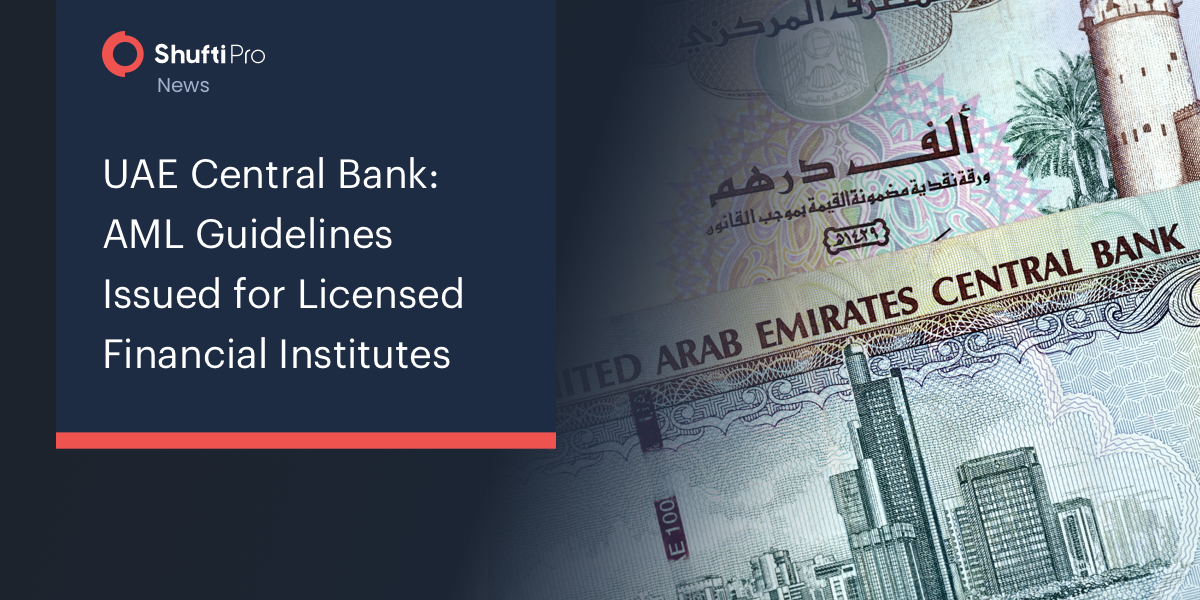UAE Central Bank: AML Guidelines Issued for Licensed Financial Institutes

The UAE Central Bank has issued guidance for financial institutes to fight money laundering, terrorism financing, and other criminal offences by enforcing ‘crime-combating measures’.
On Saturday, the UAE Central Bank issued new guidelines for financial institutions to combat money laundering and terrorism finacing. The regulator in the UAE has asked lenders and other licensed institutions in the country to report any suspicious activities they suspect to be linked with money laundering, terrorism financing or other criminal offences.
The suspicious reports will be filed directly through goAML portal to the UAE’s Financial Intelligence Unit, within 35 days of detection. Khaled Balama, Central Bank Governor, said in his statement that these news guidelines are aimed at reinforcing the efforts of licensed financial institutions to effectively enforce “crime-combating measures.”
The UAE has been vigilant in introducing and adopting strict AML/CFT laws to deal with financial crimes, such as financing of terrorism and money laundering, and illegal organisations. Earlier this year, UAE established an authority to detect and identify financial criminals and individuals suspected of organised crimes.
As per the recent guidance by UAE Central Bank, licensed institutes are obliged to assess the potential risks of money laundering and terrorist financing posed by customers. Moreover, the institutions must develop appropriate AML programs to counter such risks.
In November 2020, the Ministry of Economy also took various measures to fight money laundering; one being setting up the court in Abu Dhabi to tackle tax evasion and money laundering cases.
The new guidelines issued are applicable for organisations, associations, foundations, trusts or other similar companies and arrangements. Recently, UAE has introduced strict penalties for entities failing to comply with AML (Anti-money Laundering) laws. In April, an exchange house was fined Dh496,000 ($136,000) for failure to comply with AML regulations. However, the name of the organisation wasn’t disclosed by the regulator.

 Explore Now
Explore Now













